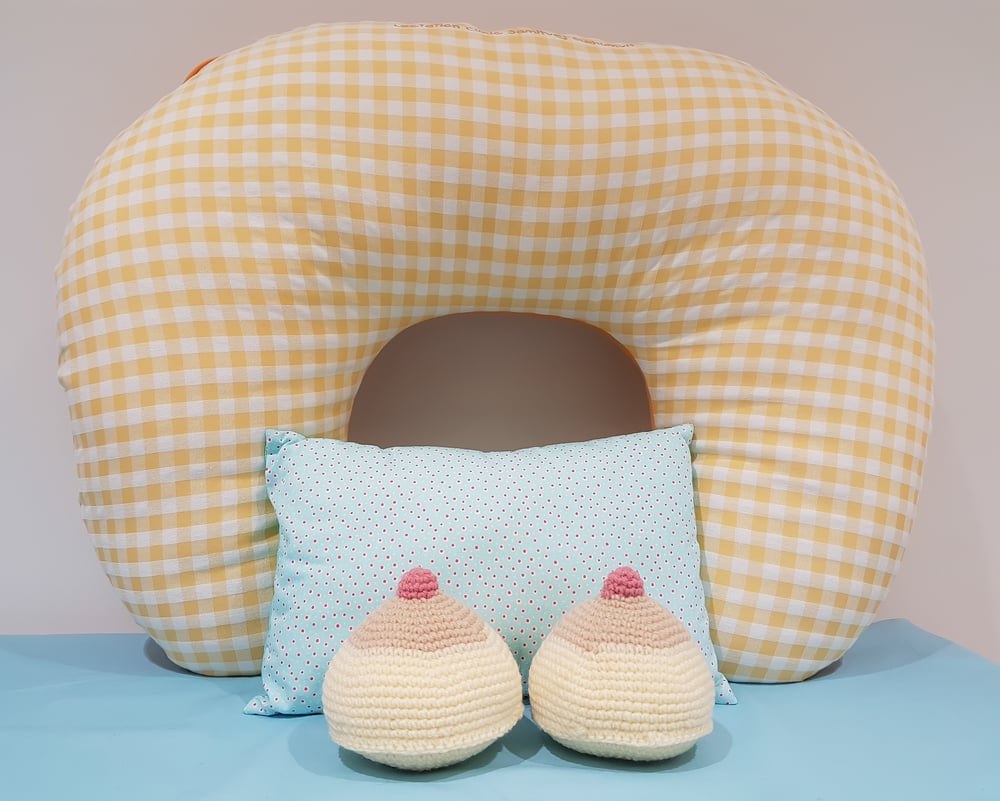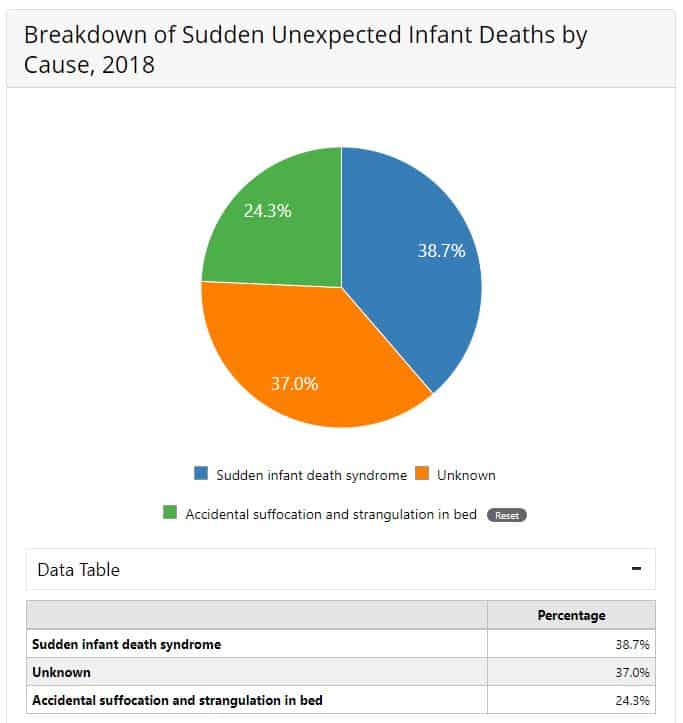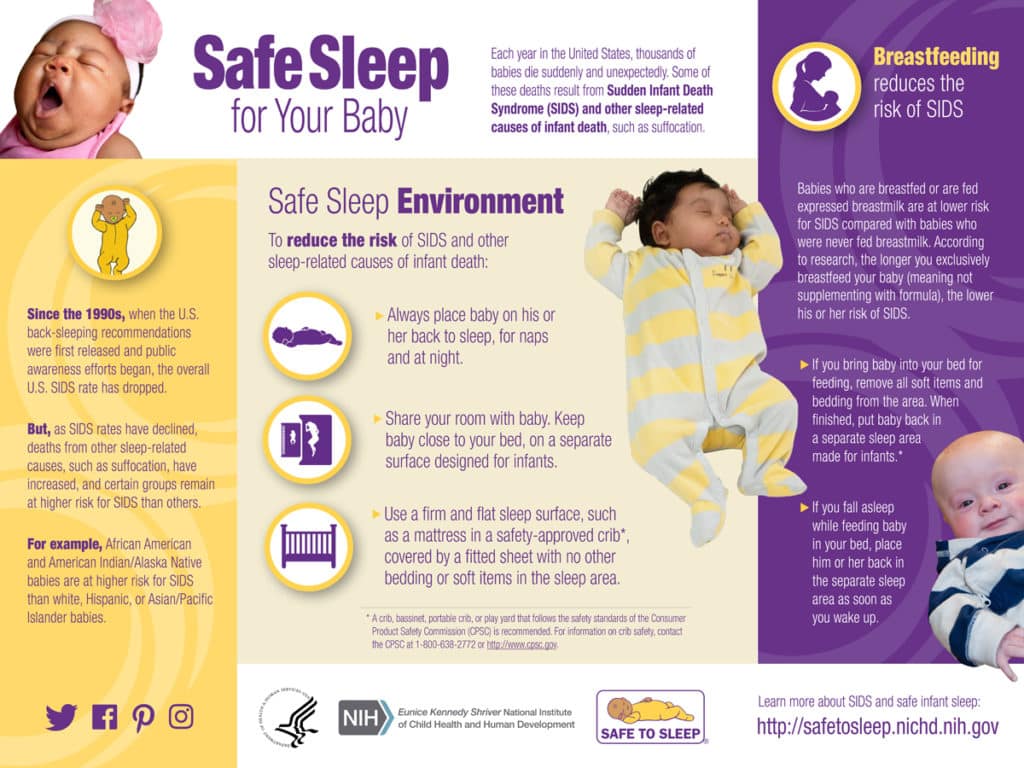
CPSC Investigating Infant Deaths Related to Nursing Pillows
The Consumer Product Safety Commission (CPSC) has issued a warning to parents about possible infant deaths related to nursing pillows. The CPSC warns that nursing pillows should not be part of a baby’s sleep environment.
Nursing pillows and similar items are popular for new mothers. They help support the infant during feedings and provide much-needed relief to the mother’s arms, shoulders and back. Unfortunately, if nursing pillows are used incorrectly, they can be dangerous to infants – or may even result in death.
CPSC Investigating Infant Deaths Related to Nursing Pillows
The CPSC’s warning to parents comes during an ongoing investigation into infant deaths possibly related to nursing pillows and similar products. The CPSC says that the infant deaths occurred while infants were left on or near the products. The infants fell asleep, rolled over or rolled off of the products causing the injuries and/or deaths.
When infants are positioned on the soft pillow-like products, they are at risk for rolling onto their stomach or side, which can position their head against the soft fabric and cause suffocation. Also, when infants are propped up in an incline position, their heads may fall forward, which can block the airway.
The CPSC’s warning includes several products, including:
- Nursing pillows
- Lounging pads
- Pillow-like infant products
- Sleep wedges
Consumer Reports has found at least 28 reports of infant deaths related to these products. Their report and the CPSC warning include popular brands and retailers, such as:
- Boppy
- Ergobaby
- Luna Lullaby
- Amazon
- Bed Bath & Beyond
- Buy Buy Baby
- Pottery Barn Kids
- Target
Consumer Reports found that between 2012 and 2018, at least 28 infant deaths were related to the products in the CPSC investigation. The CPSC is not investigating particular brands or products, however, but is investigating the entire class of products.
CPSC and Consumer Reports Make Rare Safety Statement
Generally, public safety statements are not given by federal agencies until a recall is issued. However, the CPSC believes that parents need to be aware now. William Wallace, manager of safety at Consumer Reports says,
“This is an essential warning about nursing pillows and baby loungers. It’s rare for federal safety officials to make a public statement like this in the middle of an investigation. We commend the CPSC for alerting parents and caregivers to the danger while it works to get to the bottom of the issue.”
Federal law makes it difficult for agencies like the CPSC to notify the public of product hazards before a recall is issued. Wallace believes that this is a dangerous practice that may contribute to injuries and deaths that could be prevented. Wallace says,
“The CPSC must be able to warn the public much more quickly and in much more specific terms when it knows a product puts people at risk of getting hurt or killed.”
CPSC Safety Recommendations for Parents
Statistics estimate that as many as 1,000 infants suffocate each year in their sleep. The Centers for Disease Control and Prevention (CDC) estimates that 24.2% of sudden unexpected infant deaths (SUID) are caused by accidental suffocation and strangulation in bed.

Fortunately, there are things that parents can do to reduce the risk of injury or death. In their warning, the CPSC offers some safety recommendations for parents who use nursing pillows or similar products. The agency recommends:
- Do not let infants sleep on nursing pillows or other similar pillow-like products.
- Do not use infant sleepers or pillows that have an inclined back of more than 10 degrees.
- Avoid using infant seats, bouncers or other inclined products for sleeping.
- Always follow manufacturer instructions when using infant products.
- Follow safe sleep advice from experts:
- Bare is best – Do not put pillows, blankets, bumpers or stuffed animals in the crib with infants.
- Back to sleep – Always put infants to sleep on their back on a firm, flat surface.
- If you experience any type of safety-related incident with a pillow-like product, contact the CPSC. In doing so, you help the CPSC continue their investigation into potentially dangerous infant products.
Dr. Ben Hoffman, chairman of the American Academy of Pediatrics’ Council on Injury, Violence, and Poison Prevention says,
“While nursing pillows may help moms and babies breastfeed more easily, they clearly represent a danger with regard to sleep.”
Experts recommend infants sleep alone, unrestrained and on their backs in order to be as safe as possible. Reports related to nursing pillows and similar products show that infants are being placed on the pillows to sleep.
Safe Sleeping Environments to Prevent Infant Deaths
Several campaigns and recalls in recent years have highlighted safe sleeping environments for infants. For much of 2019 and early 2020, inclined sleepers were a hot topic as multiple product manufacturers recalled inclined sleepers due to potential infant deaths.
In 2019, the CPSC also proposed changes to rules that require products marketed for infant sleep to conform to certain standards. A task group is scheduled to meet shortly to discuss safety standards for infant sleepers and related products. The AAP believes that safety standards and regulations could be the key to preventing infant deaths. Dr. Hoffman says,
“Pillows, inclined sleepers, and other products that don’t meet the standards are, frankly, dangerous and should never be a place where babies sleep.”
The American Academy of Pediatrics (AAP) offers parents information about the back to sleep campaign. They recommend these guidelines for infants up to one year old.

The APP recommends:
- Always put infants to bed on their back.
- Once the infant can roll over on their own, it is not necessary to reposition them back on their back.
- Keep the crib or sleeping space clear and free from pillows, blankets, toys or bumper pads.
- Infants should sleep in their own space with a mattress that is firm and flat.
- For the first year, the AAP recommends infants sleep in the same room with parents.
- Infants should never sleep on a sofa or chair.
- The AAP advises against bed-sharing in order to prevent suffocation.
The AAP further says that parents who have questions or concerns about their infant’s sleep habits or environment should contact their pediatrician for advice.
Always follow your doctor’s advice and manufacturer instructions and safety warnings.

